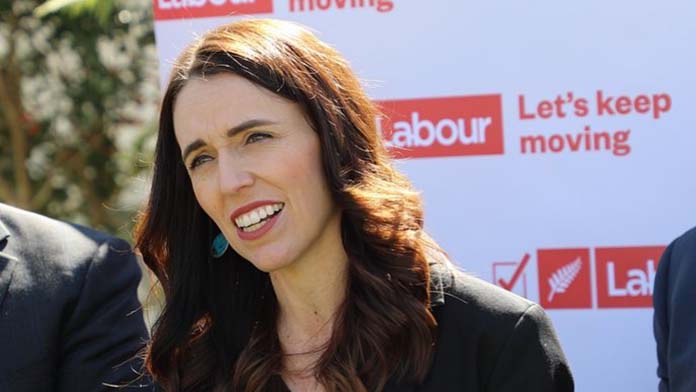Jacinda Ardern’s resignation last month as leader of the Aotearoa/New Zealand Labour Party and therefore as Prime Minister came as a shock.
Ardern had led Labour to two election victories, including in October 2020 when the party won more than half the popular vote in a general election for the first time since 1946.
In May 2020, her domestic popularity peaked at 61.3 per cent.
Globally, she became a favourite of the soft left, not least for her empathetic reaction to the horrific Christchurch massacre in 2019, in which an Australian far right terrorist killed 51 Muslims.
Ardern explained her resignation as “not having enough in the tank” to continue the job. She had endured death threats for her COVID-19 lockdown policies and misogynist attacks similar to those suffered by Labor Prime Minister Julia Gillard.
But that personal story can’t hide the fact that, under her leadership, Labour went into decline. Although new Prime Minister Chris Hipkins has received a small bounce in the polls, Labour is still heading for defeat in October.
In 2020, Labour won 50 per cent of the vote. Today, it is sitting at about 34 per cent. The main conservative party, National, is heading for victory in alliance with ACT, which is a more right-wing and fiercely anti-worker party.
Ardern has a reputation as a progressive. As Aotearoa socialist Elliot Crossan notes, her government reduced child poverty from 22.8 per cent in 2018 to 16.3 per cent in 2021. It raised benefit levels above inflation, increased the minimum wage and introduced a new top income tax rate of 39 per cent.
However, that is far from the whole story. Ardern, who learned conservative social democratic Third Way politics while working as an intern for British Labour Prime Minister Tony Blair in 2006, was committed to placating the rich throughout her time as leader.
In 2017, Ardern confirmed her support for a set of Budget Responsibility Rules to be followed by a Labour-Green government. Although the policy had been proposed by the Greens, it represented neoliberal orthodoxy.
The aim was to keep the government in surplus and reduce government debt—while maintaining state spending at or below 30 per cent of gross domestic product.
In 2019, Ardern pledged she would never introduce a capital gains tax. The following year, she committed to never introducing a wealth tax.
Even when she introduced a new scheme to allow workers to strike deals across industries there was a sting—no strikes were to be allowed during bargaining.
Faced with COVID disaster, Labour spent huge sums to keep the economy afloat during the pandemic. But the benefits flowed overwhelmingly to the bosses.
So there was a mortgage “holiday” but no restrictions on rent, giving landlords a boost. Labour gave subsidies to business, some of which took the money and sacked workers anyway.
This led to the biggest increase in inequality in the country’s recorded history, worsening a situation which had already seen the wealthiest tenth own one-quarter of the country’s assets, while the poorest half of the country had just 2 per cent.
Housing crisis
For many workers, the biggest attack on their standard of living has been the cost of housing, with property prices rising much faster than wages.
The result, according to Save the Children, is a growing disaster. Seven per cent of all children in Aotearoa live in households with major problems, including dampness or mould. That figure rises to 11 per cent for Maori children and 17 per cent for Pasifika children.
The number of households on the public housing waiting list grew from 3352 in 2015 to 18,520 by 2020.
As Crossan observes: “We have a crisis of inequality, a housing crisis and a low-wage economy in Aotearoa, and a climate crisis upon which every country needs to take radical action.
“Transformational change was needed and was promised by Ardern. But that was taken off the table by the self-imposed fiscal straitjacket of the Budget Responsibility Rules, and by the ideology of Third Way social democracy.”
Faced with inflation at 7.2 per cent and food prices going up by more than 11 per cent in the last year, the response from new Labour leader Hipkins has been to declare that Ardern went too far, too fast.
So he has “delayed” new hate speech laws that were a response to the Christchurch massacre and a plan for an improved unemployment insurance scheme.
All this is a reminder to Australian unions that going quiet for Labor helps the right.
Ardern was ultimately loyal to Aotearoa capitalism, undermining support for her government. Voting Tory in October won’t help workers. But whoever wins, workers will need to fight.
By David Glanz






